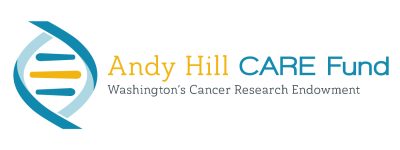research advocacy
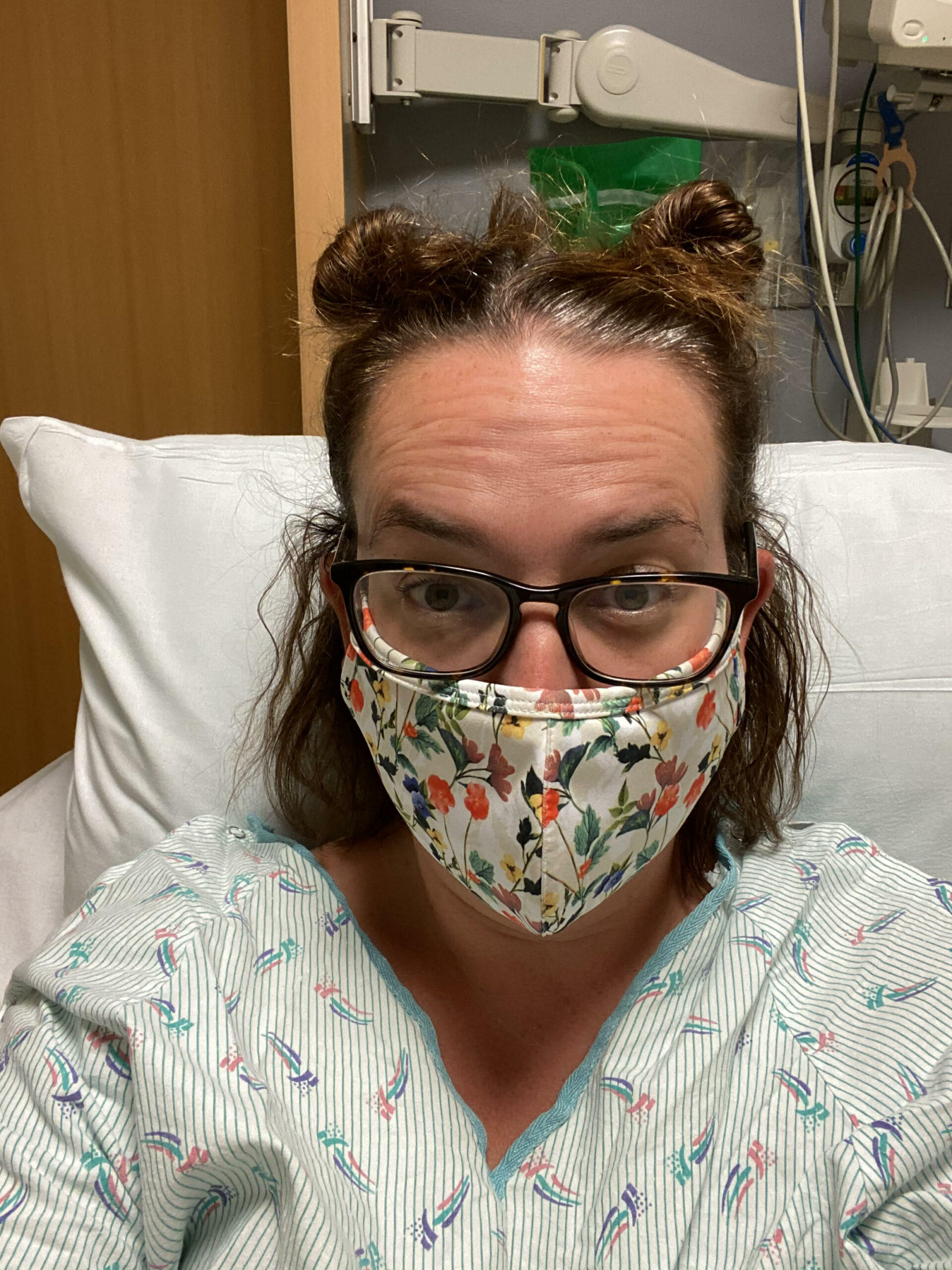
Use Your Power
Survivors offer unique and indispensable perspectives to research, providing scientists with information about what’s most important to patients, and encouraging scientists to persevere in the face of the myriad of barriers.

Ovarian cancer survivor Anna Hedden attended her first scientific conference in October, participating in the DOD Ovarian Cancer Academy Retreat and the AACR Special Conference in Cancer Research: Ovarian Cancer.
Here are her powerful thoughts on the experience:
Having been previously involved with ovarian cancer advocacy on a legislative side only, I have to admit, I was a bit intrigued by two questions prior to arriving at the conferences. First, could my voice truly offer a different perspective to a scientist-survivor collaboration? After all, I was about to enter a room full of very accomplished physicians and scientists. And second, was it really possible for me to tell such a highly knowledgeable audience anything they didn’t already know about ovarian cancer? Well, looking back at my experiences, the answer to both questions is resounding “Yes”, and I couldn’t have felt more humbled and honored to have had an opportunity to share my story, and to contribute my insights and points of view. I can truthfully say I felt genuinely embraced by the entire scientists-physicians community at both events.
In addition to the incredible privilege of sharing my synchronous cancers journey, I also came away from both conferences with deep sense of purpose, clarity of vision, and unwavering commitment to continue to pursue research advocacy. Meeting, and having an opportunity to learn from and interact with so many physicians and scientists not only enriched my understanding of the GYN cancers space but, also, opened my eyes and exposed me to the frightening vacuum of unmet needs within the ovarian cancer landscape. Something that I intuitively suspected but could not quite articulate prior to attending both conferences in Boston.
All the knowledge, interactions, and education I received truly crystallized and reinforced my most profound beliefs that, in the context of ovarian cancer, and all of its rare tumor types and subtypes, conversations in our society about “Underserved Communities” and “Lack of Access” cannot simply be limited to the issues of demographics. Of course, these are very important conversations to be had and, more importantly, vitally needed actions to be implemented, so that the barriers are as much as possible minimized and, ultimately, eliminated. But that alone would not address the needs of the ovarian cancer patients (and families) whose tumor profiles, at present time, simply do not have any targeted treatment options. And that is, more than anything, what is driving my advocacy passion going forward. Speaking up and out for Anyone, who doesn’t have a fair chance to succeed, so that Everyone (no matter their tumor profile) would have an equal chance to survive!
In that context, one could make a strong argument that entire ovarian cancer, as a disease, is an “Underserved Community”. And only: (1) firm commitment to continued research, (2) prioritizing increased and thoughtfully targeted funding, and (3) powerfully vocal and skilled advocacy can bring us closer to making this disease survivable for all (urgently needed!) and, hopefully, curable (some day).
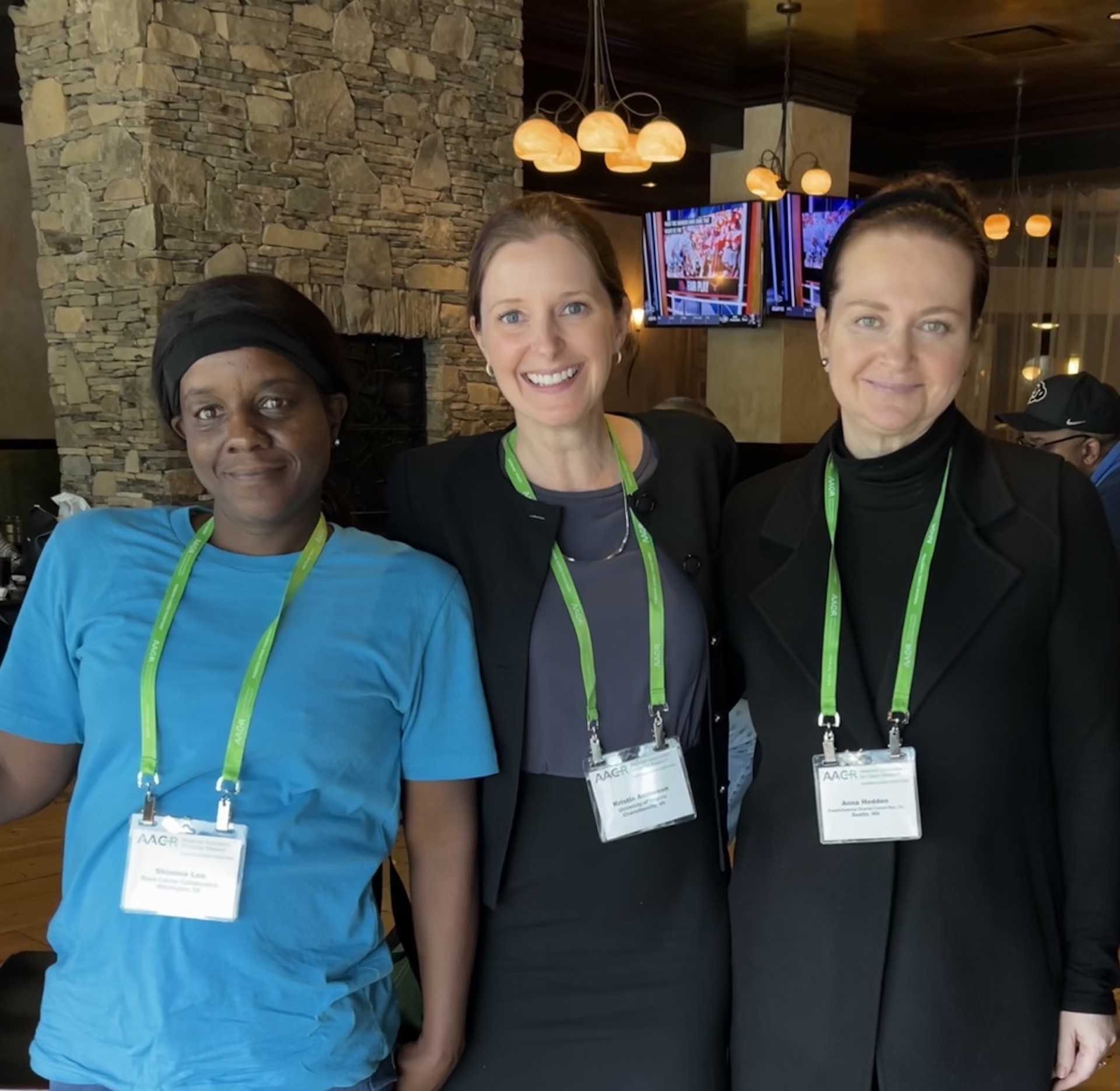
Advocate Shianne Lee, scientist Dr. Kristin Anderson, advocate Anna Hedden.
Meet our newest Research Advocates!
Anna Hedden and Shianne Lee
attended the DOD Ovarian Cancer Academy Retreat and the
AACR Special Conference in Cancer Research: Ovarian Cancer in October where they learned about current ovarian cancer research and interacted with scientists to facilitate collaboration.
Susun Livingston and Deborah Binder attended the annual conference of the American Association for Cancer Research (AACR)!
To champion the POWER of scientist/survivor collaboration, we sent two ovarian cancer research advocates to the American Association for Cancer Research (AACR) Annual Meeting, April 14-19, 2023, in Orlando, Florida. While there, the advocates participated in the Scientist-Survivor Program (SSP), learning about cancer research and interacting with scientists, doctors, health professionals, and other advocates. Here is their experience:
You can read more about the AACR Scientist-Survivor Program here:
Our ovarian cancer research advocates at the annual conference of the American Association for Cancer Research (AACR)!
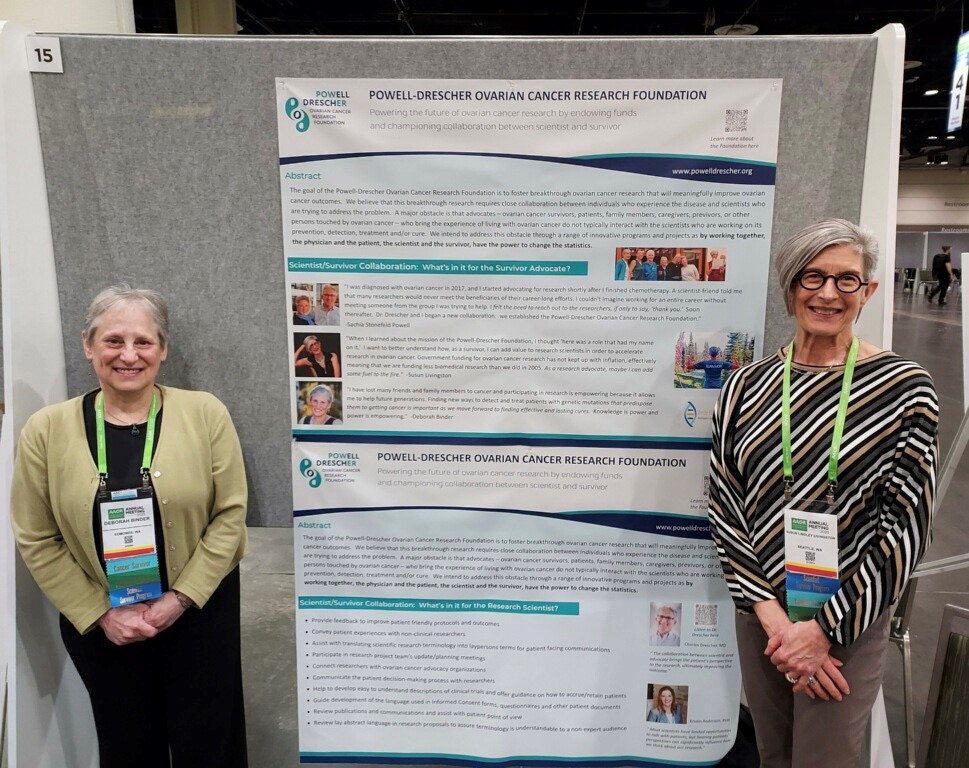
ABOVE: Deborah Binder and Susun Lindley Livingston present posters at AACR in April 2023.
BELOW: The posters explaining the benefits of scientist/survivor collaboration.
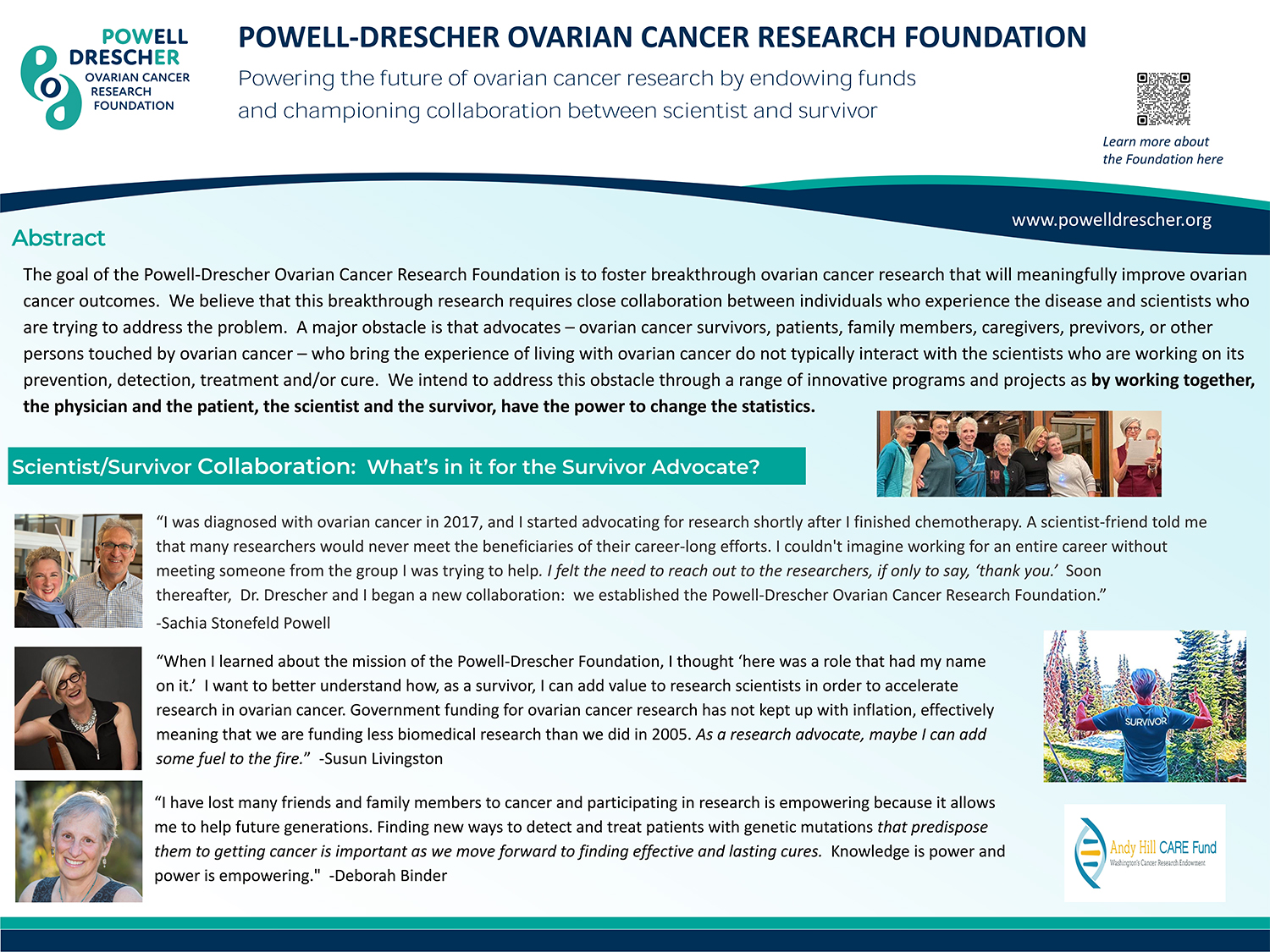
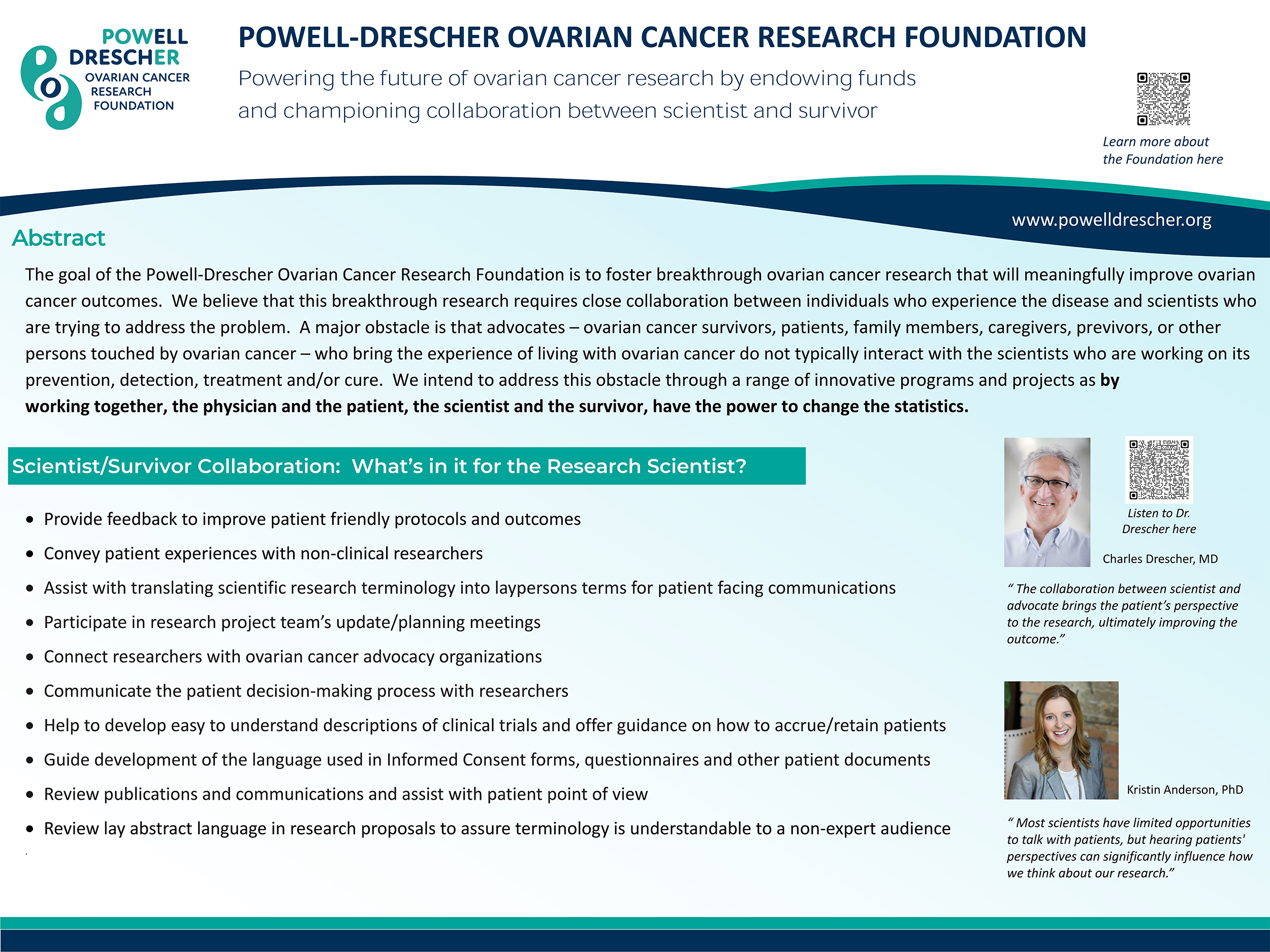
You can watch our recorded presentation on research advocacy with ovarian cancer researcher Dr. Kristin Anderson and ovarian cancer survivor/research advocate Annie Ellis:
Other Ways to Advocate in Research:
The Department of Defense (DOD) Ovarian Cancer Research Program (OCRP) integrates patients, survivors, family members and/or care takers (collectively called “consumers”) into the scientific review process in order to enrich the review with personal perspective, passion, and a sense of urgency that ensures the human dimension is incorporated in the research focus.
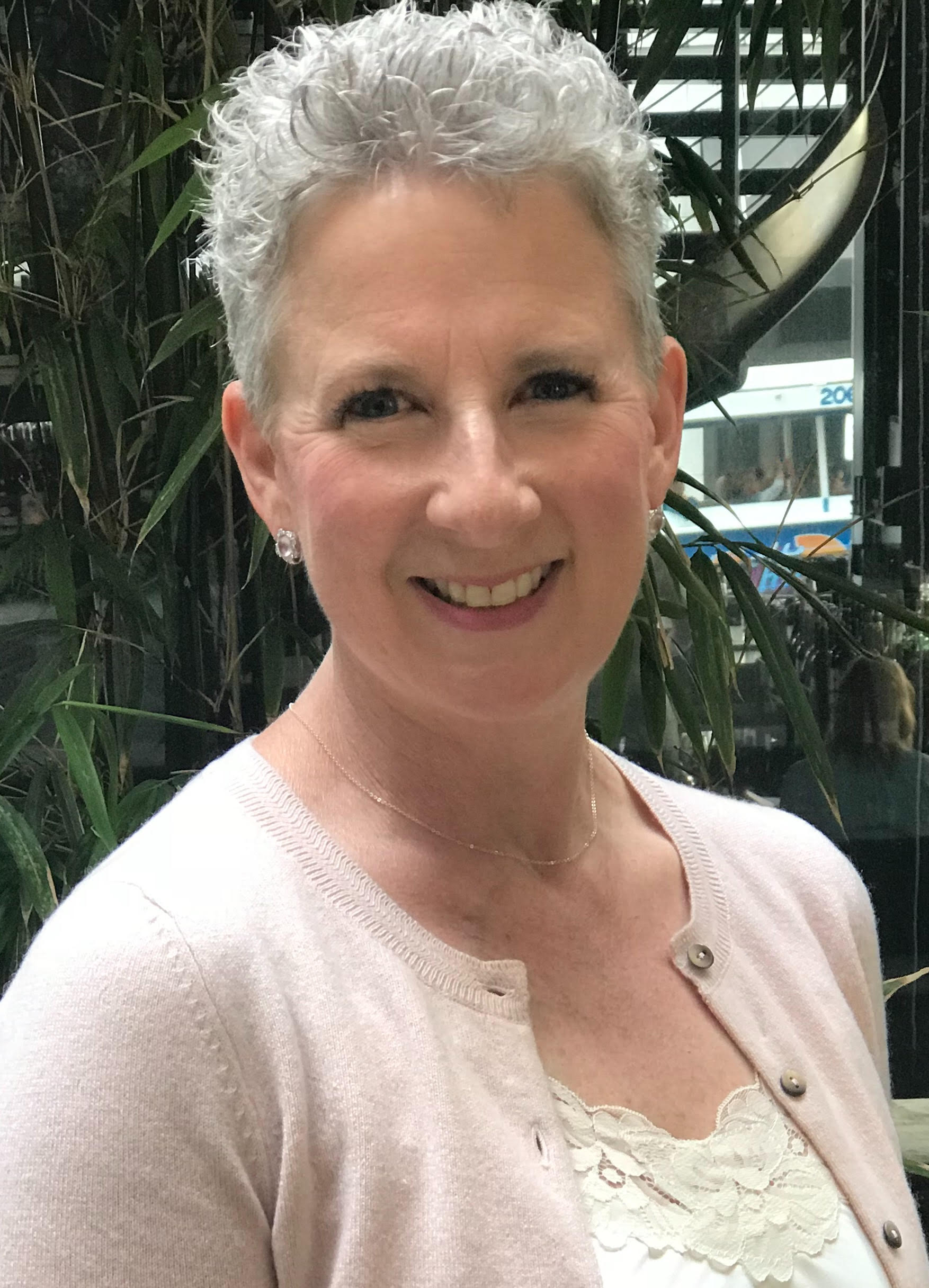
Read about Sachia's experience as a Consumer Reviewer with the DOD Ovarian Cancer Research Program (OCRP) here:
You can read more about the DOD OCRP and how to apply to be a Consumer Reviewer here:
The Ovarian Cancer Research Alliance (OCRA) Advocate Leader Program trains advocates to speak up in their communities and represent the cause with their elected officials. You can read more about this program and how to apply here:
